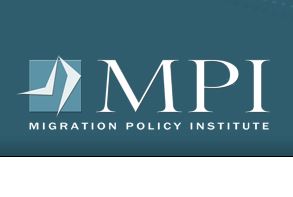Canada poaching skilled migrants from US
Canada has recently unveiled an innovative new program to ramp up its skilled migration intake.
The ‘Tech Talent Strategy’ is targeting highly skilled immigrants in STEM and high-growth sectors such as health care.
And it is being described as “unusual” because it is explicitly targeting visa holders in its neighbour – the US.
From July 16, Canada will operate a dedicated work permit stream specifically for high-skilled immigrants in the US who hold an H-1B non-immigrant visa.
The program is part of a broader strategy that will also seek to recruit prospective entrepreneurs and digital nomads and will grant a three-year work permit, as well as work or study permits for accompanying family members, to up to 10,000 of the US H-1B visa holders over the next year.
Observers says Canada’s new program cleverly exploits weaknesses in the US visa system, offering work and study permits for spouses and other family members and the potential for a permanent future.
While the work permit opportunities are for temporary status but the Canadian system generally has more avenues than does the US system for skilled workers to attain permanent residency status, especially for those who have gained Canadian work experience.
Across western nations, including in Canada, Australia, Germany and the UK, there has been competition and dynamism in attracting, admitting, and retaining the international talent seen as necessary for economic success and to fill skills shortages.
By contrast, the US immigration system’s employment-based provisions have not been overhauled since 1990.
H-1B visa holders face a series of challenges in the US, including restrictions on spousal employment and green card wait times that can stretch to decades for some cohorts.
Observers say the Canadian move should be a wake-up call for US policymakers with the approaching end of a long-standing advantage the United States has had in attracting highly skilled immigrants.
 “While the vast, dynamic U.S. economy and U.S. cultural dominance remain a strong pull factor for the world’s best and brightest, the benefits and opportunities available to skilled migrants are much more difficult to access in the United States than in countries that offer faster and more flexible pathways to permanent residence,” says a report by the Washington-based Migration Policy Institute (MPI).
“While the vast, dynamic U.S. economy and U.S. cultural dominance remain a strong pull factor for the world’s best and brightest, the benefits and opportunities available to skilled migrants are much more difficult to access in the United States than in countries that offer faster and more flexible pathways to permanent residence,” says a report by the Washington-based Migration Policy Institute (MPI).
“The global competition for talent is heating up as more countries introduce policies to make it easier to attract, admit, and retain immigrants with sought-after skills such as those in science, technology, engineering, and mathematics (STEM) and in fast-growing sectors such as health care. Canada struck the latest salvo in this contest with a new tech Talent Strategy unveiled in late June,” the report says.
“One of the most eye-catching elements is a new dedicated work permit stream that explicitly targets high-skilled immigrants in the United States who hold an H-1B non-immigrant visa.
“This new pathway, which goes live on July 16, will provide over the next year up to 10,000 H-1B visa holders a three-year open work permit (meaning they can work for any employer) while crucially also offering work or study permits to their accompanying family members. The Tech Talent Strategy also seeks to woo digital nomads (workers working remotely in another country) and prospective entrepreneurs,” the report says.
Read the full MPI report here: www.migrationpolicy.org/news/canada-recruitment-us-immigrant-workers.












